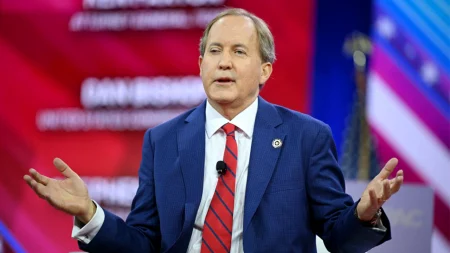Timothy Mellon: The Billionaire Behind Trump’s Campaign
Timothy Mellon, the reclusive heir to one of America’s greatest banking fortunes, has emerged as a pivotal financial supporter of Donald Trump’s presidential campaigns. A man who generally shuns the public spotlight, Mellon has chosen to wield his considerable wealth in service of conservative politics, becoming one of the most significant individual donors in modern American electoral history.
Born into extraordinary privilege as the grandson of banking titan Andrew Mellon, Timothy has forged his own path through business ventures primarily in the transportation sector. His company, Pan Am Systems, operates railroads and other transportation assets across the United States. Despite his immense wealth, estimated at over $1 billion, Mellon maintains a notably low profile compared to many of his ultra-wealthy peers. He resides primarily in Wyoming, far from the coastal centers of power and influence, and rarely gives interviews or makes public appearances. This preference for privacy has made him something of an enigma even as his political donations have placed him squarely in the national conversation about money in politics.
Mellon’s support for Trump represents just one facet of his broader conservative giving strategy. He has demonstrated particular interest in border security and immigration enforcement, having donated substantial sums to fund border wall construction efforts and supporting politicians who champion restrictive immigration policies. His political worldview appears shaped by traditional conservative values and a skepticism toward government intervention in business and personal affairs. Unlike some major donors who spread their contributions across both parties to maintain access and influence regardless of who holds power, Mellon has concentrated his political giving almost exclusively on Republican candidates and causes aligned with Trump’s agenda.
What distinguishes Mellon from many other mega-donors is not just the scale of his giving but also his apparent disinterest in the social and networking benefits that often accompany major political contributions. While many wealthy donors leverage their political giving to secure invitations to exclusive events and meetings with powerful figures, Mellon seems content to exert his influence from afar, rarely attending fundraisers or seeking the spotlight. His approach to political philanthropy appears pragmatic and ideological rather than social or access-oriented, focused on advancing specific policy priorities rather than elevating his personal status or business interests.
Mellon’s financial support has become increasingly critical to Trump’s political operation, particularly as some traditional Republican donors have distanced themselves from the former president. His contributions have helped sustain Trump’s campaign infrastructure and political action committees during periods when other funding sources have diminished. This financial backing represents a significant advantage for Trump, providing resources for advertising, voter outreach, and campaign operations across crucial battleground states. The scale of Mellon’s giving also highlights the outsized role that individual wealthy donors can play in American politics following the Supreme Court’s Citizens United decision and subsequent rulings that removed many restrictions on political spending.
Despite his enormous influence on the political landscape through his financial contributions, Mellon remains something of a cipher to most Americans. His reluctance to engage publicly means that his motivations and specific policy priorities must largely be inferred from his pattern of giving rather than from his own statements. This combination of enormous political influence and personal reclusiveness makes Mellon an intriguing figure in contemporary American politics—a powerful kingmaker who operates almost entirely behind the scenes. As campaign finance laws continue to allow unlimited contributions to certain political organizations, figures like Mellon will likely continue to shape American democracy in profound but often invisible ways, raising important questions about influence, accountability, and representation in our political system.










